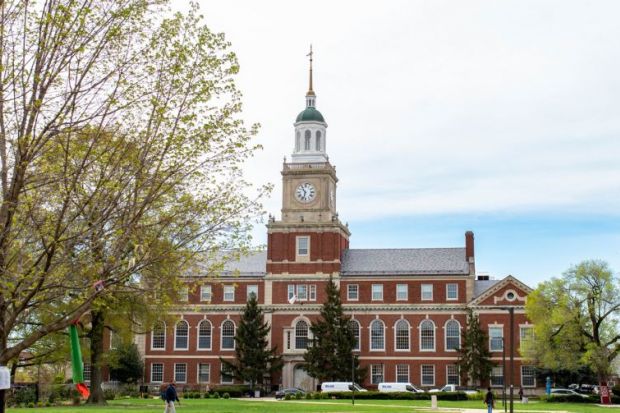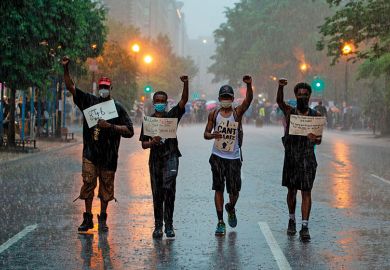Howard University students have agreed to end a month-long sit-in protest over poor housing conditions that drew top US civil rights leaders back to one of the nation’s pre-eminent historically black institutions.
Howard’s president, Wayne Frederick, announced the end of the occupation of the Blackburn University Center without immediately describing what promises he made to end the 34-day confrontation.
“This is a welcome development, and a necessary conclusion to a challenging few weeks for everyone involved,” Professor Frederick said in a three-minute video statement. He spoke of a general commitment to ensuring “best-in-class housing” for Howard students, but otherwise avoided details.
The sit-in, which grew to about 100 students, was prompted by dormitory residents describing rodents, flooding and mould in their buildings. Protester demands for better housing conditions were later expanded to include calls for a revival of previous levels of student, alumni and staff representation on Howard’s board of trustees.
Protest leaders said that the settlement terms were confidential but suggested that the central elements of their demands – other than those involving the trustees – were met, including a ban on any official repercussions against participants in the demonstration.
Some students said their housing conditions were bad enough to sicken them. Those visiting campus to show support included Jesse Jackson, a former US presidential candidate, and Ras Baraka, a Howard graduate and current mayor of Newark, New Jersey.
The situation reflected both the growing popular attention enjoyed by the nation’s historically black colleges and universities, and the wide gaps still remaining in their political and economic power. The US Congress is working to complete legislation that would provide minority-serving institutions some $2 billion (£1.49 billion for academic research, yet the funding measure keeps falling short of the votes needed for final passage.
Professor Frederick has repeatedly told the Howard community that he respects peaceful protest and its power to bring about needed change, but said that the demonstration left him anxious for student safety and concerned that the uprising was interfering with campus operations. Blackburn includes the university’s largest dining hall, and some staff and alumni lent support to the protesters by camping outside it in tents.
Register to continue
Why register?
- Registration is free and only takes a moment
- Once registered, you can read 3 articles a month
- Sign up for our newsletter
Subscribe
Or subscribe for unlimited access to:
- Unlimited access to news, views, insights & reviews
- Digital editions
- Digital access to THE’s university and college rankings analysis
Already registered or a current subscriber?








